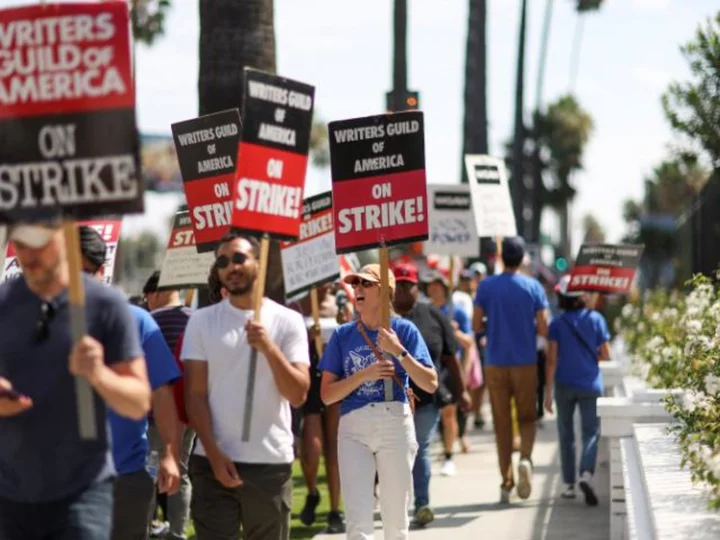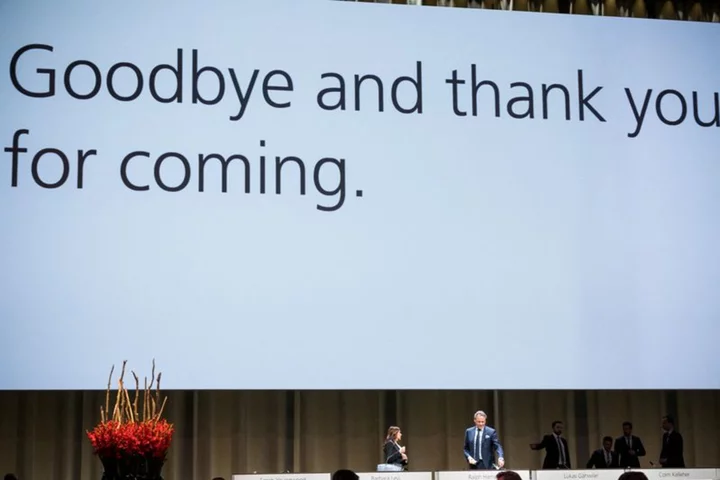The major film and television studios and striking writers reached a tentative agreement on Sunday after days of marathon negotiating sessions, the Writers Guild of America said Sunday evening, paving a path forward to end the historic work stoppage that has frozen production and paralyzed much of Hollywood.
"What we have won in this contract -- most particularly, everything we have gained since May 2nd -- is due to the willingness of this membership to exercise its power, to demonstrate its solidarity, to walk side-by-side, to endure the pain and uncertainty of the past 146 days," the WGA said in an email to members on Sunday. "It is the leverage generated by your strike, in concert with the extraordinary support of our union siblings, that finally brought the companies back to the table to make a deal."
While the agreement still needs to be ratified by members of WGA, which represents more than 11,000 writers, this marks a significant turning point in the nearly five-month-long strike. The current walkout came close to beating the longest strike in WGA history, a 1988 strike that lasted 154 days.
"We can say, with great pride, that this deal is exceptional -- with meaningful gains and protections for writers in every sector of the membership," the WGA said in its message to members.
WGA concerns
Revenue streams from traditional linear television have been declining, and streaming services -- while growing -- are losing money. Seasons for streaming shows also tend to be shorter, which means less work for writers.
The writers have said they can't afford to live under the current economics and pay structure of the television and movie industry, with fewer job opportunities on many shows and lower pay for many writers who do find work. There are many successful, even award-winning, writers who are finding themselves unable to make a living at the profession anymore.
Writers are also concerned about the rise of artificial intelligence and want protections to ensure movies and shows are written by humans, not machines.









